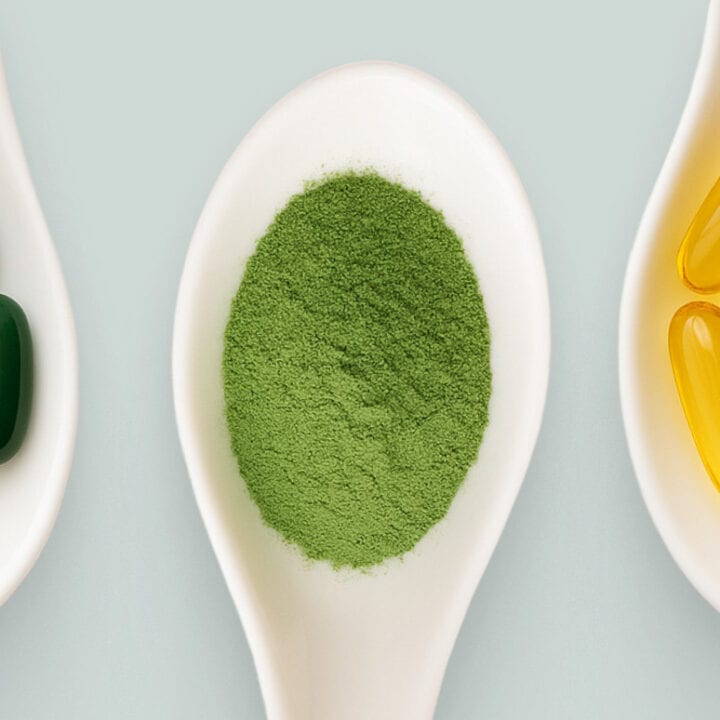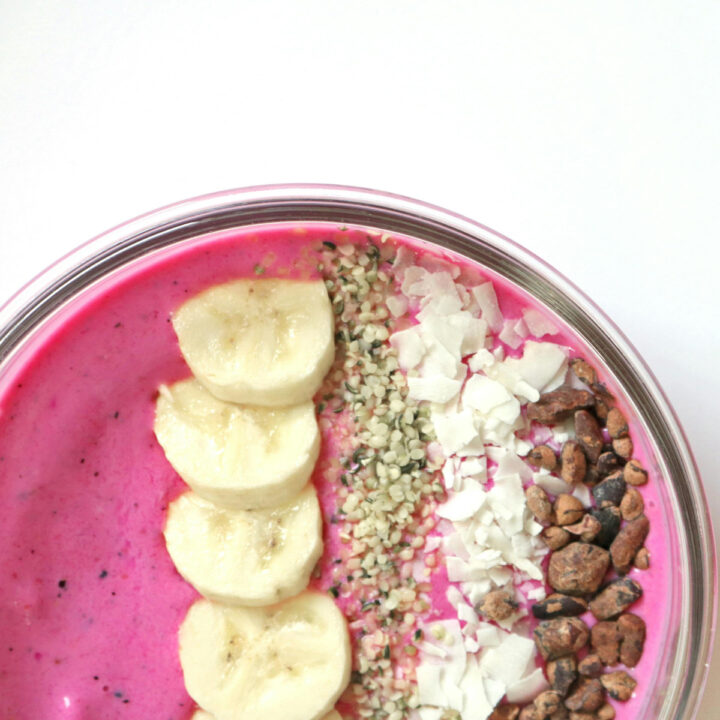Wondering ‘are figs vegan?’ This debate hinges on whether the pollination process by wasps, essential for some figs, fits with vegan values. Our exploration delves into this unique partnership and spotlights those commercial fig varieties that are wasp-free, straightening out misconceptions and guiding vegans towards informed decisions.
Key Takeaways
The vegan status of figs is debated due to their unique pollination process that involves fig wasps, some of which may end up absorbed by the fig.
Most commercial figs, like the self-pollinating ‘Common Fig’ varieties, do not require wasp pollination, making them more acceptable to vegans concerned about incidental wasp remains.
The ethical stance on fig consumption varies in the vegan community; while some consider the natural fig-wasp relationship acceptable, others avoid figs due to direct involvement of wasp deaths.
Figs and Veganism: The Great Debate

The vegan status of figs has sparked considerable debate. This debate is rooted in the unique pollination process of figs that involves–hold onto your hats–wasps! Yes, figs and wasps share a fascinating relationship that makes some question whether figs are vegan.
Vegans who oppose consuming figs do so due to their commitment to abstaining from all forms of animal exploitation. Some argue that the presence of dead wasps in figs, even if incidental, does not align with the vegan aim of avoiding all forms of animal use, making us question if most vegans eat figs.
Understanding Veganism
What does veganism entail? It’s a lifestyle dedicated to not consuming or endorsing animal byproducts. This extends beyond diet to include choices in purchasing and fashion. People adopt a vegan lifestyle for various reasons, including health improvement, environmental impact reduction, and to support animal welfare by preventing cruelty.
Fruits and vegetables are generally suitable for vegans, with rare exceptions influenced largely by media speculation. The rise in veganism’s popularity has led to an expanded range of vegan food products in the market. As far as practicable, the distinction is made between avoiding industrial exploitation of animals and the incidental consumption of insects, like in the case of figs.
The Role of Wasps in Fig Pollination
Contrary to common belief, figs are not fruits, but inflorescences - intricate structures housing hundreds of internal flowers. These internal flowers require fig wasps for the pollination process necessary for the figs to develop. This necessity can present a dilemma for vegans, as it involves the use of an insect in the food production process.
The fig-wasp relationship is an impressive marvel of nature. As the female fig wasp enters the fig to lay her eggs, she inadvertently pollinates the fig. After laying her eggs, the female wasp dies, and her body is absorbed by the fig, leaving no wasp remnants.
The Fig-Wasp Relationship: A Symbiotic Partnership

The fig and fig wasp relationship is a remarkable mutualistic relationship. Each species depends on the other for survival, highlighting a partnership that has persisted for around 80 million years. Some key features of this relationship include:
Nearly every one of the over 850 fig species has its own unique fig wasp species
Wasps are intricately adapted to the fig species they pollinate
This illustrates their specialized coevolution
During the pollination process, the fig eventually absorbs the body of the wasp, leaving no trace of the insect within the fruit. This process is considered natural and is essential for fig reproduction.
The Life Cycle of Fig Wasps
The fig flower, also known as the inverted flower, is not accessible to bees, hence fig wasps play a crucial role in the pollination process. Female fig wasps enter the figs and pollinate the inverted flowers as they lay their eggs. Interestingly, their lifespan rarely exceeds 48 hours and does not involve feeding.
After the female fig wasps lay their eggs inside fig flowers, they die and their bodies are digested by a special enzyme in the fig. Meanwhile, male wasps incubate within the fig and assist emergent females by creating exit pathways. This is an intricate dance of nature that ensures both the fig and wasp’s survival.
How Figs Benefit from Wasps
Figs and fig wasps share a mutualistic relationship that exclusively benefits both species. The fig plant ensures its pollination and reproduction through this relationship, preventing other potential pollinators from entering this closed system. This relationship is crucial for pollination and subsequent seed development, ensuring the continuation of the fig species.
Inside the fig, the wasp larvae feed on plant tissue provided by the fig, which surrounds the eggs in response to their presence. This supports the wasp’s development and the fig’s pollination. Female fig wasps carry pollen from the fig in which they were born to the next fig, pollinating its flowers before laying their eggs and ultimately dying inside.
Commercial Fig Production: Wasp-Free Varieties

Here’s an interesting fact. Most commercially grown fig varieties do not require wasp pollination. So, if you’ve been biting your nails over whether your fig snack is vegan-friendly, you can breathe a sigh of relief! The majority of figs consumed by humans are cultivated from varieties that do not require wasp pollination and thus do not contain wasp remnants.
Some types of commercially grown figs ripen without pollination and do not require wasps. The use of plant hormones can also induce the ripening of figs without the need for wasp pollination, providing a vegan-friendly cultivation method.
Self-Pollinating Figs
Interestingly, certain fig varieties have the ability to self-pollinate. This process, called parthenocarpy, leads to seedless fruit and is genetically controlled in figs. Varieties such as:
Mission
Sierra
Celeste
Adriatic
Kadota
Brown Turkey
Ficus carica, or fresh figs, have the ability to self-pollinate, which is a unique characteristic of the fig tree, and this process involves male figs.
These self-pollinating figs do not require interaction with wasps to produce fruit, making them a perfect fit for vegans. In fact, the majority of commercially available figs in the United States are self-pollinating common figs, and they are consistent with vegan standards as they do not include wasps in their developmental process.
Popular Wasp-Free Fig Varieties
Common Figs, including the ancient common fig, are a popular selection not only for their taste but also due to their independence from wasp pollination. Wasp-free ‘Common Figs’ include varieties such as:
LSU Gold
Hollier
Sal’s
Excell
Negronne
Deanna
184-15
143-36
Hardy Chicago
Atreano
Paradiso
Black Spanish
Verte
Osborne Prolific
Conadria
Ital 258
Lattarula
Popular wasp-free fig varieties found in stores include Black Spanish, Verte, and Osborne Prolific. So, next time you’re out shopping for figs, you know which ones to look for! It is highly unlikely to find a wasp inside these commercial fig varieties as they do not require wasp pollination.
Ethical Considerations: Should Vegans Consume Figs?
Let’s delve into the ethical implications now. Some vegans avoid certain types of figs because of the pollination process that involves the death of a wasp, highlighting an ethical dilemma for the vegan community. The Vegan Society’s definition of veganism allows for the avoidance of animal exploitation and cruelty ‘as far as is possible and practicable,’ which may permit the incidental consumption of insects, impacting the debate on figs.
Most vegans agree that the fig-wasp life cycle does not contradict vegan principles of avoiding animal exploitation and cruelty, suggesting a consensus on the consumption of figs. However, the presence of dead wasps in figs raises concerns for some vegans, but many accept that the fig-wasp life cycle is natural and mutually beneficial, aligning with vegan principles.
Pro-Fig Consumption
Proponents of fig consumption by vegans argue that the wasp-fig pollination process is a natural occurrence, devoid of human-induced exploitation or animal cruelty - the main concern of vegan ethos. Figs are considered vegan-friendly by some due to the non-exploitative nature of fig-wasp interactions, as the process happens naturally without human intervention.
Figs are rich in dietary fiber, vitamins, and minerals, making them a nutritious addition to a vegan diet. Eating figs can be a great way to incorporate these nutrients into your daily meals. Moreover, if figs were to be avoided solely because of potential incidental wasp presence, it would require vegans to also avoid other crops where incidental harm to animals can occur, demonstrating the practical limits of such a perspective within figs vegan lifestyle.
Anti-Fig Consumption
Contrarily, a section of vegans opposes fig consumption due to the inevitable death of wasps in the fig pollination process, which they believe conflicts with vegan principles. Unlike accidental insect presence in other crops, figs inherently contain the remains of wasps because of their unique pollination process, solidifying the argument against their consumption.
While the female fig uses an enzyme to completely break down the wasp’s exoskeleton, meaning no wasp parts persist in the fruit, the ethical issue of the wasp’s death itself is not addressed, making some vegans avoid figs.
Finding Vegan-Friendly Fig Products
What’s the best way for vegans to find fig products that conform to their principles? Specific applications like Fig can verify the vegan status of fig products and other ingredients. Products bearing certified vegan labels serve as reliable indicators for vegans to determine whether fig products fit into their diet.
Contacting manufacturers is another trusted method for vegans to get information on the vegan status of fig products, particularly when product labeling is unclear. When evaluating fig products, vegans should also consider other non-vegan ingredients such as additives or ‘natural flavors’ that may be present.
Vegan Action has even endorsed certain wasp-fertilized fig products, signaling their acceptance among some vegan-friendly certifications.
Summary
In a nutshell, the fig-wasp relationship is a fascinating symbiotic partnership that raises interesting questions for vegans. While some vegans may choose to avoid figs due to the incidental presence of wasps, many commercially available figs are wasp-free and perfectly vegan-friendly. As with many aspects of veganism, the decision often comes down to individual interpretations of what it means to avoid animal exploitation ‘as far as is possible and practicable’. So, the next time you reach for that fig bar, you’ll have a little more insight into the age-old question: Are figs vegan?
Frequently Asked Questions
Why are figs not considered vegan?
Figs are not considered vegan because they are pollinated by a certain species of wasp, which becomes trapped and ultimately digested inside the fig. This makes them unsuitable for a vegan diet.
What fruits are not vegan?
Yes, some fruits are not considered vegan because they rely on bees for pollination, such as apples, pumpkins, plums, watermelons, alfalfa, and cranberries.
What figs do not need wasps?
Common figs, such as Brown Turkey, Celeste, Brunswick, and Mission, do not need wasps for pollination. They belong to the species Ficus carica and are parthenocarpic, meaning they can produce fruits without pollination.
Do vegans eat figs peta?
Yes, vegans can eat figs because they are considered vegan by PETA. However, some varieties of figs may contain at least one dead wasp, which may not align with the vegan lifestyle.
Why do figs need wasps?
Figs need wasps for pollination and seed development, as the wasps lay their eggs inside the figs, creating a symbiotic relationship.
Sources:
- https://www.ncbi.nlm.nih.gov/pmc/articles/PMC10516628/
- https://www.ncbi.nlm.nih.gov/pmc/articles/PMC8623061/
- https://www.ncbi.nlm.nih.gov/pmc/articles/PMC10005417/

Cassie Anderson is a vegan healthy and fitness lifestyle writer who shares her passion for plant-based nutrition, wellness, and fitness. She believes that veganism is not only good for the animals, but also for the planet and the people. She inspires her readers and followers to adopt a vegan lifestyle that is balanced, sustainable, and enjoyable. She also provides practical tips, recipes, workouts, and reviews of vegan products and services. Cassie has a degree in nutrition and health sciences, and is a certified personal trainer and yoga instructor.
Cassie Anderson is a vegan healthy and fitness lifestyle writer who shares her passion for plant-based nutrition, wellness, and fitness. She believes that veganism is not only good for the animals, but also for the planet and the people. She inspires her readers and followers to adopt a vegan lifestyle that is balanced, sustainable, and enjoyable. She also provides practical tips, recipes, workouts, and reviews of vegan products and services. Cassie has a degree in nutrition and health sciences, and is a certified personal trainer and yoga instructor.




Comments
No Comments